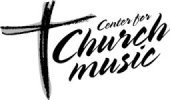Center For Church Music, Songs & Hymns

Recent articles
- Kids Choir Camp 2012: A Soldier of the Cross!
- Kids Choir Camp 2011
- Billy's Questions: Session 1
- How I Can Help
- The Song of the Cross
Great Hymns of the Faith CDs
Categories
- Church Musicians
- The Weight of Glory
- Be Prepared
- Singing Hymns
- Singing Lessons
- John Wesley on Singing
- Singing: A Call to Excellence
- Lay People
- Billy's Questions
- C.S. Lewis on Worship
- Kids Choir Camp
- A Song of Christmas
- Singing Hymns
- Knowing Christ
- Christmas Eve Truce
- Pastors
- Music
- Church Musician
- Worship
Our Author

Music & Worship
Singing: Lessons Learned from the Early Church!
We have spent the last year looking at lessons learned form the teaching and practice of the early church. As we said on April 26, 2006, "the musical philosophy of those hardy saints was not abstract: it was built on the practical reality of the writings of the Old Testament and the teaching of the Apostles.
In our next series of articles we will look at the biblical principles found in Scripture that help to buttress our reasoning regarding music in the church. But, before we get to this exciting study, let's review some of the principles learned from the early church.
- Music was at the heart of worship. The teaching and example of the New Testament Church found music to be an essential element in worship. As we mentioned in a previous article, Ralph P. Martin, states that the "Christian Church was born in song."
- The song of the Church was not born in a vacuum. The Psalms of Judaism provided the foundation for the singing of the early Christians. Hence, psalms and newly composed hymns to Christ formed the repertoire for the offering of vocal praises, praises that helped them focus their faith and fill their minds with the "discipline of the Lord's indwelling presence."
- Instruments were not popular in the New Testament Church. This is not because they were inherently unacceptable, but due to their association with immorality and pagan worship. Noviatian (a 3rd century Roman presbyter) said it succinctly: "By a trick of the devil, sacred things, [meaning instruments] have been transferred into illicit things."
- Hymns were an essential element in the teaching of theological ideas to the ordinary people in the church. The church fathers believed that the hymns helped people "to focus their mind and heart on the things of Christ." St. Ambrose wrote: "[By the singing of my hymns] all know how to praise the Father, Son and Holy Spirit in verse. All then are rendered masters, who had scarcely managed to be disciples."
- The church fathers (leaders) struggled to insure that music "does not lead to sensuality...but to true spiritual character." See Augustine's quote from the October 5, 2007 CCM newsletter.
The bottom line for the early church was simple: music matters! Light and frivolous music was excluded while music permeated with "weight and majesty" was cultivated. May it be so today as well. To God be the Glory!
